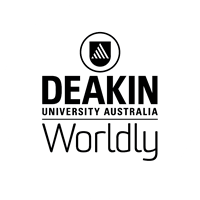Workshop
Workshop title: Preparing engineers for the 21st century: How to teach engineering students process skils.
Facilitator: Dr. Nijos J Mourtos
Affiliation: Director & Professor, Aerospace Engineering Program, San Jose State University, USA
Duration: 3 hours
Description:
Process skills (problem-solving, lifelong learning, critical thinking, self-assessment, change management, communication and collaboration, etc.) have always been important in any education and work setting. However, new challenges presented by a new, globalized economy, have put a new focus on these skills in the engineering workplace. Process skills present a great challenge for educators and practicing engineers alike because they are hard to define explicitly and even harder to develop. They depend on attitudes and values as much as they depend on content knowledge. For educators the challenge is three-fold: (a) how to clearly define these skills, (b) how to assess them, and (c) how to effectively teach them to their students. The workshop addresses the design and implementation of curriculum that prepares engineering and technology students for the challenges of the 21st century workplace.
Expected outcomes:
Workshop participants will have an opportunity to:
1. Discuss the need for process skills in the 21st century engineering workplace, especially in light of the challenges presented by globalization.
2. Define process skills – describe the attributes of engineers who are lifelong learners, problem-solvers, cope well with change, etc.
3. Design an engineering course of their choice that uses their familiar technical content as a vehicle to teach students process skills. This will involve defining learning outcomes, choosing appropriate instructional methods, and assessment.
Participants will have an opportunity to develop their own tools and processes that suit their specific programmatic needs.
Workshop title: Improving Student Teaching & Learning: The Place of the Student Voice in Institutional Settings
Facilitator 1: Professor Sid Nair
Affiliation: Centre for the Advancement of Teaching and Learning University of Western Australia
Facilitator 2: Assoc. Professor Dr. Marlia Puteh
Affiliation: Language Academy Universiti Teknologi Malaysia
Duration: 2-3 hours
Mode: Hands on workshop with active discussion
Description:
Research over the past decade has confirmed that student perceptions are important parameters of the social and psychological aspects of the learning environments (Fraser 1998; Ramsden 2005). Research studies have consistently confirmed a strong correlation between learning and teaching environments and levels of satisfaction (Fraser 1998; Nair and Fisher 2001). Influenced by research findings and also as a result of external pressures, many providers in the higher education sector have realised the need to re-evaluate their approaches to this provision by placing a greater emphasis on meeting the expectations and needs of students and also other stakeholders (Cheng and Tam 1997; Griffin et al 2003). Thus, student feedback has gradually become an integral part of the continuous quality enhancement and assurance mechanism in higher education (Harvey 2003). A critical role has recently been ascribed to student evaluations by tertiary institutions as this may influence the decision to enter, persist with or leave higher education (Nair and Pawley 2006; Mavondo et al 2000).
Expected outcomes:
What we intend to do in this workshop is to: look at what we know or have heard about evaluations look at the fundamentals of evaluations froma hands-on; and,a research perspective. probe the role of the teacher, central units, management and students in the feedback loop look at what method of administration is best for evaluations, when such evaluations should be done and how look at how to enhance engagement of students in the process at the various levels investigate the next steps once you get your students engaged.
Acknowledgement
The researchers would like to acknowledge Universiti Teknologi Malaysia for
supporting and funding this project under the Research University Grant Flagship
Program. Vot no.02G79.

